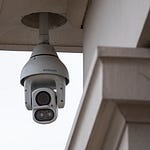Happy Saturday! Last weekend I wrote about Left to Our Own Devices: Coping with Insecure Work in a Digital Age by Julia Ticona. The book explores how mobile phones shape the lives of both high- and low-paid contingent (i.e., nonpayroll) workers. It’s based on ethnographic interviews that Ticona, an assistant professor at the University of Pennsylvania’s Annenberg School for Communication, conducted with 100 precarious workers in four U.S. cities from 2013-2016.
I met Ticona when she was a postdoc at Data & Society in New York City working on a couple projects related to the gig economy and I was working for Quartz. We chatted about how she conducted the fieldwork for her book, the origins of the term ‘gig work,’ and how she thinks contingent workers derive a sense of pride and identity from stringing together gigs. I also asked her some of the questions that Oversharing subscribers sent in via last week’s thread—thank you for those!
Interviews like this are available exclusively to paid Oversharing subscribers. You can listen to the audio or read the transcript, which has been condensed and edited for clarity. The next book I’ll be reviewing is Road to Nowhere: What Silicon Valley Gets Wrong about the Future of Transportation by Paris Marx. Grab a copy if you’re interested in following along.
Oversharing: What got you interested in the gig economy, in this kind of work, and in the digital frame?
Ticona: I grew up in a pretty rural town, a small city in upstate New York. I like to call it Southern Canada. And was surrounded by folks who were poor and working class. I grew up pretty middle class in that town, both my parents were professionals, but it was extremely common for people to be working a couple of different jobs. I was surrounded by folks who were trying to make ends meet in a bunch of different ways, and it was a pretty normal part of my life. And as a teenager was when—not to date myself too much—teenagers were getting really excited about having their own cell phones.
Was this the flip phone era?
Oh yeah. Full flip phone. I had this ridiculous phone a couple of years later after my first flip phone. That was the Samsung Juke. I'll never forget this phone. It was the size of a lipstick. It was my favorite phone that I've ever had. So I was starting to use a cell phone. We were starting to figure out ways to text each other and to play games, use it to calculate our tips at our service industry jobs that we were working, figuring out to meet up after those jobs at parties or wherever we were meeting at somebody's house.
And not just for us as teenagers, but also increasingly for the folks that we were working with too. These devices were very important for the ways that we were doing our jobs. And when I went to college, kind of continued to be the case. As I kind of worked through federal work study in the United States and in a bunch of different happenstance gig jobs. And I just kept being kind of interested in these marginal ways that digital technologies were taking over these forms of work that weren't really being talked about.
So I graduated into a recession in 2009 and went right into my PhD in sociology as I think many who were privileged to were able to at that point. And so I started my PhD in sociology and had to pick a topic, had to figure out what are you interested in, what do you want to keep learning about? And it was the same idea: that digital technologies were so fascinating, especially in the world of work. And I had to go about figuring out what could I add to that conversation.
This book is based on your PhD research. When you came up with a proposal, did it look like the book we have today or did it go through a lot of different iterations?
You know, it was actually pretty similar. The anxiety producing thing that happened in between when I proposed this research and when the book now is out was the advent of the quote-unquote gig economy, and this way that digital technologies and low-wage work became fused together in the American popular imagination in a way that I could have never predicted. I went this whole time going, ‘Hey, is anybody caring about this? Does anybody see how important these technologies are for people who are not white-collar workers?’ And then in 2010-2011, Uber ate my lunch and came out and said, hey, we're going to start this huge splashy company. We're going to draw in all these cultural narratives about entrepreneurship and being your own boss and all this stuff, but we're going to fuse it with service industry work, or other kinds of blue-collar work and definitely quote-unquote, lower-skilled work.
Before Uber, when you were starting out, had you heard the phrase ‘gig work’?
Absolutely. Gig work was a term that we were using within sociological circles coming out of the recession. And I know Uber was pretty synonymous with that coming out of the recession as well. They were certainly the beneficiary of a lot of that excess, a lot of that unemployment. But we were talking about what sociologists often call precarious work or contingent work. Those are the less sexy terms.
Those are the BLS terms.
Yes, exactly.
What are some examples of jobs that would have been put in that bucket of gig work but that weren't Uber?
The profession that originated the term gig work was musicians. So musicians, actors, actresses, these folks whose jobs are necessarily temporary in a big way. It came out of creative work. And of course, even though they kind of brought this, this word, the gig into popular consciousness workers, like domestic workers, of course, and agricultural workers were the original gig workers. When we think about temporary jobs that are meant to be or that are necessarily part-time or seasonal—thinking about the ebbs and flows of child-rearing, the ways that kids age and go to school and come out of school, or the ways that crops are planted and need to be taken out of the ground—all of those things are necessarily what we would say are contingent. Not meant to be full-time all the time, every single day, in the same way.
You lay this out early in your book when you introduce the idea of a white-collar work frame, which you talk about as the presumption that digital work and tech-enabled work is white-collar work. But actually this digital shift has affected all parts of the economy, including these low-paid contingent jobs.
I wish that I had a better story for how I came up with this idea of the white-collar frame, but it was honestly as a graduate student I was looking for photos for research presentations for conferences on these free stock image sites, and just being like, are there any pictures of people who are using these technologies in a uniform, in a car, in a hospital—anywhere that is not what I started calling the sun-drenched office problem. They're all in these beautiful sun-drenched offices with their laptops and their cell phones. And I was just like, this picture is not doing it for me. So it was really from there that I was like, oh right. These are the workers who are assumed as the standard, and everybody else is marked as a deviation from that, as exceptional or even as deficient, which I think is a big problem.
You recruited the people for your study by hanging out at different retail stores. Can you talk a bit about that process and any particular people that stand out to you from your field work?
So one of the things with setting up field work in any kind of large-scale interview study like this is you have to figure out how are you going to find these people? And how does the way that you find people fit into your hypotheses about how these phenomenon work. What I knew going into this was that a lot of this tech use was not subsidized by employers. Because these folks did not have a single employer. They were working across a number of different employers. They were working for themselves. So I thought, I have to go to places where people buy these things. And in 2014-2016, when I was doing this work, people were still going into physical stores and buying their technologies. And I think a lot of people still do this.
Yeah! How would you do it now?
I don't even know. I ran into this a little bit with this study with the high-wage workers, because a lot of the high-wage folks were already buying all these things online. So I had to recruit them also online. And to make sure that the folks that I was meeting in person were not substantially different from the folks that I was meeting online. But a lot of consumption of consumer electronics does still happen in person, and it is extremely classed in the U.S. What I realized when I started going into these neighborhoods and trying to look for places that would actually let me stand around for a while and talk to their customers was that we have this ubiquitous example of the Apple Store. But of course, if you look at where Apple Stores are in different cities, they are in very privileged, wealthy areas.
The Apple Store is also the ultimate example of an intentional luxury consumer good experience.
Exactly. And people buy their phones in a number of different places that do not look anything like that. So I had to seek out those places, places like Radio Shack, places like Walmart, and also what folks have called side shops or spaza shops in other countries there are almost like bodegas. This was really common in the rural area that I recruited in and also in the lower-income parts of the cities that I recruited workers from.
The people that stand out the most were the folks who were really trying to sell me phones. Because I would often hang out in these spaces multiple times a week for a couple weeks at a time. And there would be times when it wasn't very busy. And some of the salespeople in these stores were very on their grind. They were going to sell me a phone. I was a graduate student. I had very little money at this time. And I had to convince them of this fact, that I was not a good candidate for their sales. Which interestingly in the low-income shops was not an issue. They were like, no, you're fine. This is not a problem for us.
This reminds me of when I was working at Slate and the Pope came to New York. Slate decided we should do a story on Pope swag and the cottage industry of sellers that had popped up ahead of his visit. So they sent me into Manhattan to go to all the tourist shops in Times Square and be like, ‘hey, what are you selling? What Pope swag do you have?’ And every single seller would say ugh, it's just reporters. I finally got to this guy who had all these hats that said Pope Francis in USA. And he too was like, ugh, not another reporter, no one wants to buy a hat. So I said, I I'll buy a hat, how much? He said $10. I was like, absolutely not. I'll give you five. Anyway, we settled on seven.
That's amazing that it was all people like you.
So they tried to sell you phones and you said I don't actually need a phone. I'm here for the research.
And I don't have any money! And interestingly in the shops that were catered to low-income workers, low-income people, that was not an issue. That kind of tipped me off to this first aspect of digital privilege or the ways that people were being included or including themselves into the digital economy on very different terms. I was presented with offers for phone leasing programs, which are endemic in the U.S. It was basically these services that offered to allow people to break payments down over time, or that's what it looked like they were doing, but actually it was not that at all. It actually made the phones way more expensive. And at the end of the lease, you didn't actually own the phone.
The attorney general of New York city sued T-Mobile over these practices because there were salespeople that were signing people up to these programs without their knowledge. And they were saying like, this is as good as cash for 90 days, as long as you pay us back in 90 days it's no big deal. We're just floating you for 90 days through this program, which wasn't true. So all these folks ended up on these programs that should not have been and they were just taking advantage of.
You might remember I had a story about Uber's subprime car leasing program in New York where drivers didn't really understand what they were signing up for. It came with a bunch of perks in the beginning, and of course Uber needed more cars on the road. But the drivers by and large were immigrants with little to no or bad credit history. So they'd sign up for these wildly exorbitant leases. They had clauses in the contract where the weekly payment was deducted directly from your platform earnings from Uber. So it also had the effect of locking you into working for a single company, because if you didn't make enough money driving for Uber that week to pay your lease, you were in debt.
I had forgotten about that story and it was so good. Interestingly, it's a similar pipeline, because especially for folks who don't have a ton of contact with traditional financial institutions, the fact that you're walking into a phone store and this person in the phone store is like, oh no, this is a legitimate financial instrument, we have the flyer, it has our company logo on it, even though it's through a different company, which you might not even realize. I think I remember it was a similar issue with the drivers that you were interviewing too. It was at the Uber recruitment office, there was somebody there from this company, so I thought it was legit.
Right, it was third parties being recruited by Uber people with Uber laptops, but then at Uber HQ, a lot of Uber HQ legitimately didn't know this program existed.
Another thing that I loved in your book was how you talk about the “digital hustle” and specifically this idea that it gives workers a sense of identity and purpose. You write: “The digital hustle is foundational to gig workers’ ability to create and sustain a sense of dignity and self-worth across different streams of income and clients and without traditional employers. Instead of finding self-worth in raises, promotions, or good evaluations from manager and bosses, they find dignity in successful digital hustles.” I think that's such a great observation and I wondered what brought you to it and how you're seeing that play out still.
This is one of the tougher parts of the book to talk about for me. And one of the most important. I think that this kind of observation is what qualitative research, and especially research where you're actually getting out and talking to people about how they feel, can uncover in a way that other kinds of research can't or often misses. I'm a scholar of labor and especially of precarious labor. And it's really difficult to talk about the ways that these types of work are structurally exploitative. Not only these workers relationships with their employers, but their position in the economy overall is designed to keep them at the bottom. I need to be able to talk about all of those things, but I also need to be able to acknowledge the pleasures of this kind of work. And sometimes talking about both of those things at the same time can seem like I'm talking up both sides of my mouth.
But I think it's really important to acknowledge the ways that these forms of work do come with their own meaning system. There was enough of a sense of pride and accomplishment in the ways that workers were able to make these difficult situations work for themselves, that I had to find a way to talk about it. And to get it into the book because it, it matters.
Did you have the sense that that sense of identity and pride in the work was something that existed specifically in contrast to a payroll employee job, or do you think it was more borne out of a sense of necessity to make the work meaningful and bearable in tough situations?
I could say I saw some variation by class. A lot of what I saw with the high-wage workers were folks who had experience in the quote-unquote traditional nine-to-five white-collar position. And so I think that there, there was a comparison in their mind to the experiences that they had previously. And they were saying, you know, I chose this, I'm going down this path. And therefore I'm going to compare it favorably to this experience that I had previously which felt very different, and where my skills were valued in different ways. They were trading stability for uncertainty, but in a positive way.
For the folks who were on the low end, I would say some of them had those experiences, where they had jobs that had better benefits that were more full-time and were also really bad. Where they had terrible abusive bosses, or absolutely no scheduling flexibility, or were doing things that they found extremely degrading for whatever reason. And so feeling like they were more free in some ways to pick up and drop jobs because they had less of a reliance on a single employer was a part of how they talked about this pleasure.
But in large part it had a lot less to do with them talking about the pleasures of their particular employment relationship and much more to do with the pleasure of efficiently executing work or patching all the gigs together in order to survive and have some extra money. And it was very centered on their use of technology and how they were doing that in an efficient and savvy and interesting way to themselves. It was much less about, hey, I like having this tenuous relationship with my job, and it was more so, no, I get like a lot of satisfaction when people write me a review of my moving company online and they say I answered texts right away, even at midnight.
As you're saying this I was thinking of Uber drivers I've met who will be so proud of completing a thousand trips or having a perfect rating. I also think sometimes people with white-collar information jobs read about companies like Uber and they'll think why would anyone do that job? It sounds awful. And I think what people tend to forget is that Uber isn't competing for your job. Uber is competing with the Walmarts of the world, the McDonald's, where having that flexibility is really valuable because in the equivalent work options it doesn't exist.
It's all about your outside options for employment and comparable options.
I wanted to ask you a couple of the questions that some of the readers sent in. The first one is just how have things changed since you did your field work in 2013-16?
So I think if anything the dynamics that I'm talking about in this book have only intensified since I've done the field work. Pew Research Center in the U.S. puts out this wonderful survey. And they estimate smartphone ownership, the demographics of people who own smartphones, what they're doing with their phones, how they're depending on them, whether they have other kinds of internet access, whether they have another phone in their home. It's a very comprehensive kind of survey.
So I'm always looking at those to see the demographics of who's owning phones because it's been a very fascinating kind of switcheroo story. At the very outset of commercial smartphones, it was only extremely high-income people. And then we saw low-income people tracking upward and it's nearing saturation at this point, where we've got like very, very high levels of even folks with the lowest incomes owning what were once considered very exclusive luxury goods.
Another question we have is whether you have any thoughts on the scheduling apps used by service industry workers to sign up for shifts, which can be dated, slow, not user friendly, and not actually give workers a lot of flexibility compared to how they're marketed.
You know, as is usually the case with tech companies doing things, the previous version of this before there was a dedicated app was probably better. So there were scheduling apps that were happening online. That app was Facebook groups. That app was WhatsApp groups. Where you started to work at a restaurant or you started to work at a store and you joined this big WhatsApp group with all of your other employees. And people post and say like, Hey, I can't work my shift today. Or, can anybody cover my shift? It was more disorganized. It was importantly sometimes invisible to management. These are things that workers would do for themselves in order to make their lives easier. This was haphazard. It was happening everywhere. It still is happening everywhere.
This was also how the Park Slope Food Co-op handled shifts. There was this massive chaotic community forum, and if you couldn't make your shift, it was your job to find someone to swap with you. So first you'd ask your friends, but then if you were really out of luck, you'd go to this forum post and hope someone got back to you.
So that has its efficiencies and it has its inefficiencies. For a lot of different reasons on the worker side and also on the management side, because you can never quite be sure of what's going on for anybody. I think that there are ways to build these technologies where they actually do genuinely give workers more power in terms of scheduling flexibility versus saying, ‘hey, you are required to check the app every three days because we might change your shift.’ Which is often how these things get rolled out.
The other question we got was about how a lot of software requires extremely high usage internet, and that's not a reasonable expectation for people.
One of the takeaways from the book is that if you employ people and you get a benefit from them having a cell phone, you should pay for that as an employer. I say that as somebody who was a domestic employer, who employed a nanny, employed a house cleaner. I get benefits from being able to contact folks through their phones. And it is therefore my obligation to subsidize a part of that burden.
Also, certainly if you expect the worker to install any form of tracking, monitoring, or other invasive software.
Yes, absolutely. There are also slipperier ways where this happened. I'll never forget this woman that I interviewed. She actually worked in one of the consumer electronic stores that I was interviewing people through. She was interested in the research and we talked a lot while I was there. And she said, they give us these desktops to like look stuff up, but the desktop is inconveniently located, it's a hundred years old, It takes us 15 minutes to load up the company website so I can check a price in a different store. So why wouldn't I just use my phone? It's in my pocket, technically I'm not supposed to have it on the floor, but we all do. And it's way more efficient and I'm way more likely to make that sale than if I'm running back and forth to this clunky desktop. So there are ways that employers also make investments strategically based on the fact that they know workers will have these more advanced, faster technologies with them. The employees are subsidizing the employer in a big way. And that's a huge problem.
Just to wrap up, I wanted to ask you if you're working on anything exciting now that we should look out for. And also, where do you see the gig economy going? I know that's a broad question, but brief prediction.
One of the things that I got to do during covid lockdowns was to replicate the study that I did as a postdoc at the Data & Society research institute where we interviewed folks who were finding a lot of their work through platforms across ride-hailing, domestic house-cleaning, and also domestic care work. And for this study, we decided to throw in food delivery as well, because it was happening during covid and that was a really important part of the platform ecosystem during that time. And we were able to talk to them about a topic that was really, really cool for gig work researchers, which is the role that they see the state actually playing or not playing in this part of the economy.
So we interviewed folks in New York City, Georgia, Florida, and California. And it was just really interesting to be able to talk to them about the ways that state regulations, local government regulations, federal level regulations, and things like Pandemic Unemployment Assistance, and the small business, the PPP protection program, and things like that were affecting their lives or not. Now, the state and government always plays a role in gig work. But for a lot of workers, it's not at the forefront of what's on their mind. Sometimes it is. There are moments when Uber makes the Bill de Blasio version of the app.
De Blasio mode! What a great time.
Right, de Blasio mode. There are moments when the state breaks through to the top of the consciousness of everybody's working minds. But oftentimes it kind of recedes to the background as it does for many of us. If things are going okay, we don't generally interact with the state, most of us, in a really meaningful way on a daily basis. But in that moment, we were. And so it was cool to be able to talk to them about that and how it related to their work. So, were going to have some research come out on gig workers views of the state and government in a way that I don't think we've seen yet in the literature, which is cool. I'm excited about that.
I've been working on a project about the online care work platforms, platforms like Care.com, Sittercity, UrbanSitter since I've been a postdoc at Data & Society. And that is going to be turning into a book project, sometime in the next couple of years. And I am just really excited to keep thinking about the ways that digital technologies collide with informal systems of work, and the ways that these platforms formalize certain aspects of informal work, the way that it deepens precarity based on many, many centuries of informalization and exclusion from formal labor markets, especially for domestic workers. I'm really excited to explore that more.
Thanks so much for doing this, Julia. It was great. I’d encourage anyone who's interested in this topic to get a copy of Julia's book Left to Our Own Devices. You can find her at UPenn and on Twitter.













Share this post